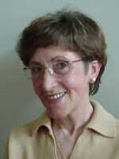 |
[ZAWiW] [gemeinsamlernen] [LiLL] | ||
|
|
||
| home | ||
|
|
Horst Schwiebert | |
|
|
Jutta Gotthardt | |
 |
||
Jutta Gotthardt
Stand:Experience Report on the European SoLiLL-project 2000-2002
 |
Jutta Gotthardt , ZAWiW, University of Ulm |
The SoLiLL project is a research project within the framework of self-organised learning in later life (-> SoLiLL) which was carried out for the first time on the European level. It lasted two years, with seniors from six European countries taking part. Three groups worked on subject “Bread” and three groups on subject “Housing” for one year and in the second year the subjects were exchanged. This way each group worked on and had results in both subjects.
Although I took part in several projects in the last years, the international work was a new experience for me. I could observe how the subjects selected by the groups - Bread and Housing – were approached and handled in different ways in the individual countries. It was also important for me to see how the ideas of the individual partners took were formed by the co-operation.
Apart the support they got from the project leaders, the seniors worked alone starting from subject selection and creation of working materials till the presentation of the results in the Internet and to the public. To be able to experience and to follow this process, also the processes of the other partners abroad, was very informative.
As already often in the past, difficult was the language communication in at least 7 languages, which led sometimes to delays, especially as one part of the working materials (questionnaires) were language materials.
As the thematic results of the engaged workers were very varied and complex, I would like to let them speak for themselves in respect to their own country. The most exciting thing for me was the attempt to research a sphere of life in own country under similar conditions, to present the results to all and to compare it with the other results – as far as comparison was at all possible and made sense. This way, a new approach to people in other countries came to being, to their way of thinking, their daily life, their history and culture. Also that which is common and that which is different in the mentalities and cultures became clearer.
Personal meetings, maybe also friendships, came to being through this totally new and different view over the borders.
